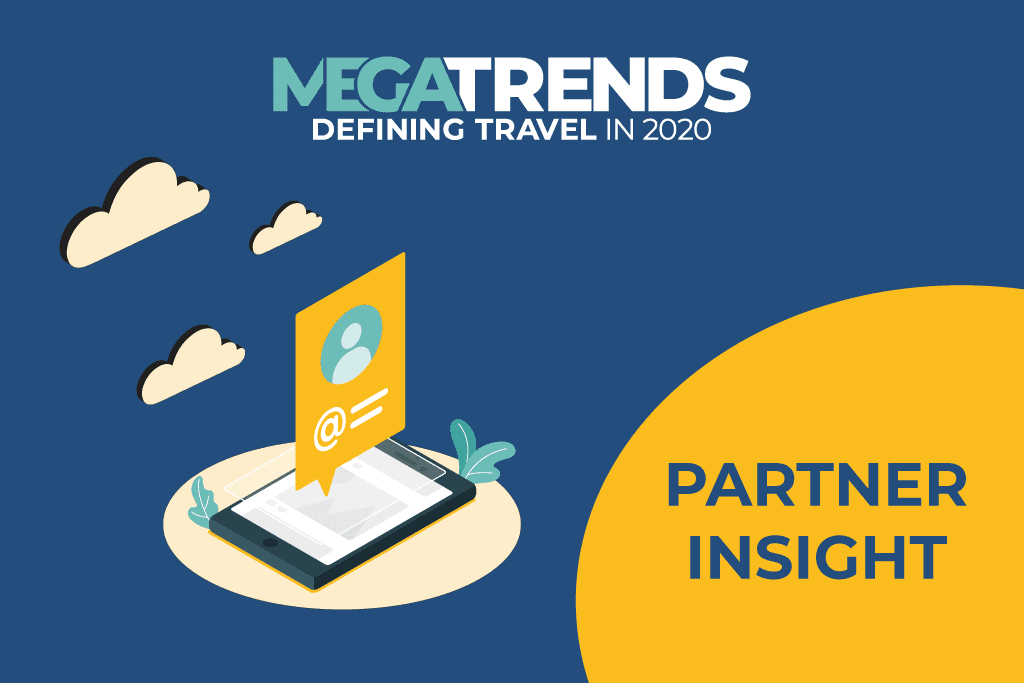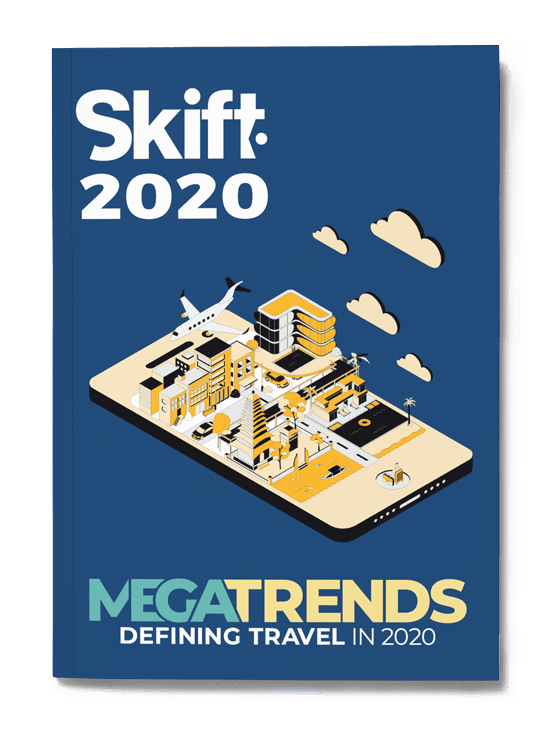Moving Beyond Demographics: Data Drives the Future of Travel Advertising

Skift Take
This sponsored content was created in collaboration with a Skift partner.
We recently released our annual travel industry trends forecast, Skift Megatrends 2020. You can read about each of the trends on Skift, or download a copy of our magazine here.
The average traveler spends 53 days looking at 28 different websites before they make a travel purchase, generating huge volumes of data about likes, dislikes, travel dates, brand preferences, and shopping habits. Multiply that by the average of five trips a U.S. traveler takes annually, and you get a sense of the wealth of data that brands can amass to understand the "why" behind consumer decisions. With that “why,” brands can go beyond standard demographic data that shows "who" a user is and create a customized advertising experience that focuses on what they want and what drives their decisions, resulting in more relevant advertising, increased sales, and more satisfied customers. But knowing where to find that data, and how to best harness it, remains challenging.
Digital marketing and advertising tools have evolved rapidly, leaving many travel companies behind. That old marketing cliché of “every traveler is unique” has given way to the more interesting reality that, to paraphrase Whitman, travelers contain multitudes. Today, digital marketing should focus less on one-to-one tactics and more on using deep data sets to create a dynamic understanding of individuals and their changing motivations, said Miguel Flecha, managing director of travel at Accenture. After all, the same business traveler who flies to Chicago twice a month also vacations in Mallorca, spends a long weekend with friends in Austin, and is planning a cruise with the in-laws and grandparents. Who exactly is she? It depends on the use case. Her behaviors, interests, and motivations change rapidly. Brands need to know her beyond her demographics — and be agile as her motivations change — in order to deliver the most effective marketing messages.
The era of the blunt algorithmic recommendation — of “because you bought X, you might like Y” — seems to be coming to a close, as many sectors, including travel, grapple with massive data sets and consumer concerns over user privacy. Instead, more nuanced recommendations, which feel like what you’d get from a close friend, are on the rise. “What many consumers ultimately want is for digital advertising to have the same social intelligence as a familiar salesperson in their favorite store — one who can tell from the expression on their face that they’re in the mood to splurge or that they’re in a hurry because it’s a Tuesday night and they need to get home to dinner,” according to a recent Accenture Interactive study.
Consider the example of retail, where direct-to-consumer (D2C) brands are offering customers a curated experience, a strong relationship with the brand, and often a higher-quality or more economically priced product. It’s a better experience for the customer, but brands also see benefits from the D2C model: They’re able to establish a direct relationship with the consumer, inspire loyalty, and gain higher margins by cutting out the middlemen. Travel brands are beginning to use similar tactics by improving their own apps and mobile sites and building stronger loyalty programs. The stronger the relationship a brand builds with its consumer, the better it’s able to anticipate her motivations and deliver relevant digital advertising, grounded in layers of data, that does feel customized at scale.
The trick is replicating that relevance online through automated technologies — at a time when consumers are on the fence about sharing even more of their own data. Still, “brands that treat data collection and data strategy as part of the consumer experience can benefit from greater consumer willingness to share information,” according to the study. About three in four consumers (73 percent) said they’d “be willing to share more personal information if brands are transparent about how it is used,” up from 66 percent in 2018. When brands are transparent about how and why they collect data, and when they use it to power better customer experiences, it’s a win-win for both sides.
While a similar level of ownership over the consumer relationship isn’t possible on platforms like Facebook, Google, and Twitter, these walled gardens do provide more data and access than travel brands get through more traditional channels, including online travel agencies. They also aggregate demand, reaching a consumer when they’re searching and ready to make a purchase, as well as helping to guide and inspire them before they start planning a trip. It’s not a direct relationship, but it gives brands access to consumer mindsets even before these individuals show intent. The data available on digital platforms gives brands a richer understanding of people, uncovering behaviors and intent that can’t be found with demographics alone. If that platform data is accessed and used in the right way, brands can create a personal, even customized, experience for consumers as part of an ongoing relationship. Nearly nine in 10 people would welcome that level of specificity, according to Accenture Interactive, which found that “87 percent of consumers think it’s important to purchase from brands or retailers that understand ‘the real me.’”
To get from today's standard to the future of customized travel advertising, brands will need to rethink how they can deliver personal experiences without owning every step in the customer journey. Those companies that use opt-in campaigns, transparent data collection, and flexible data architecture that can respond to new privacy regulations (like Europe’s General Data Protection Regulation and California’s California Consumer Privacy Act) will be the ones ahead of the curve, said Flecha. Add to that the right mix of third- and first-party data to target customers based on their choices and intent — rather than their demographics — and these travel brands will go from offering personalization to forging deep, multilayered relationships that evolve along with consumers.
Download Your Copy of Skift Megatrends 2020
This content was created collaboratively by Accenture Interactive and Skift’s branded content studio, SkiftX.





